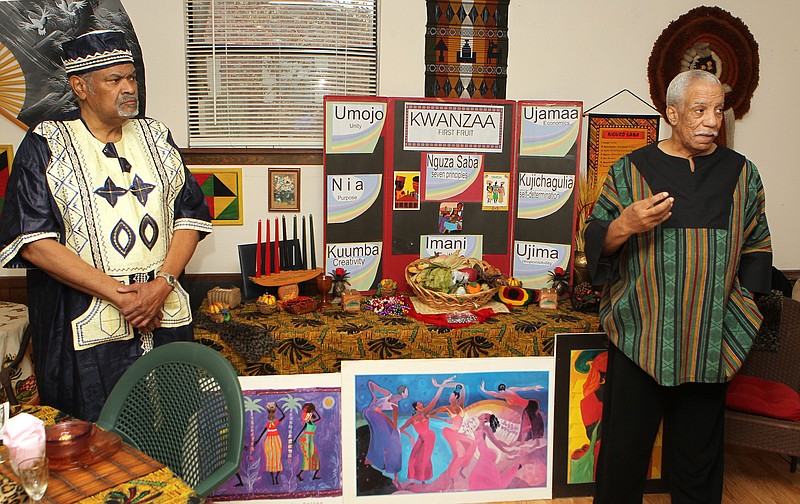Community, family and culture can all be considered key themes of the holiday season, and from Dec. 26 through Jan. 1 Kwanzaa celebrates and reflects on these very things.
"There's a Pan-African notion that we can't determine our path without a frame a reference of where we've been," said Nate Robinson, who along with his late wife, Bunnie, and a small group of friends started observing the holiday in Hot Springs in 1995. "That's in essence what the observance is all about."
Kwanzaa takes its name from the first harvest celebrations of Africa and is derived from the phrase "matunda ya Kwanzaa" meaning "first fruits" in Swahili. The celebration was established in the United States in 1966 by Maulana Karenga as a way to bring African-Americans together as a community.
Robinson said his wife had celebrated the holiday for many years and when they decided to bring the observance to their own community, it was a learning experience.
"The first few years it was just a small group of us in the community at our home, meeting the first night in our home and then everyone returning to observe the rest of the principles in their own homes," he said. "But it grew and soon we had about 50 or 60 people each year, and that's when we moved it to Charles' (Smith) home."
The seven principles, or Nguzo Saba, represent the building blocks of a solid foundation for the future, according to Robinson.
"Over the course of the week, each day you reflect on and celebrate unity, self-determination, collective work and responsibility, cooperative economics, purpose, creativity and faith," he said. "It comes full circle from unity to faith and through observing these seven principles, you are to reflect on the past year and how you will achieve these core values in the coming year."
According to Smith -- who said he got more involved with Kwanzaa in the late 1970s in Chicago -- in the early days of their observance each night's principle would be shared through storytelling, music and fellowship.
"The artists and singers and writers, we would all gather with lots of good food to observe the most significant cultural encounters they had experienced and unite as a community," he said. "Since then, we've held a feast at the Webb Center some years and we've incorporated the principles in presentations to the Job Corps during Black History Month."
Though he said there are no large community events planned this year, Smith said it's important to keep the tradition alive in the home each year to continue it in the community, to which Robinson agreed.
"By teaching our children the importance of the seven principles, we're giving them the opportunity to pick up that baton for unity," Robinson said. "That foundation of reflection and observation is what continues to move the community forward."
Local on 12/22/2014